A Japanese school where you can learn the tea ceremony ~ For those who are not satisfied with a one-day experience ~

This course is where you can learn the Japanese culture of "tea ceremony" in a short period of time. It allows you to learn a little beyond the experience, which cannot be learned through a one-day experience. This course is also popular among Japanese people who plan to study or be stationed overseas.
For those who want to learn a little more about tea ceremony rather than a one-day experience
The number of foreign tourists has increased significantly.
We are a Japanese language school located in Suidobashi, Tokyo, but due to the COVID-19 pandemic, international students were not able to enter the country and at one point we had very few students enrolled. Now, we have students from many different countries coming to study Japanese on short-term and long-term basis.
We also ran a tea ceremony class for Japanese people that offered long-term study, but because international students have to return to their home countries and are unable to study long-term, and there are also issues with their Japanese language level, we decided to create a new tea ceremony course called the "Short-Term Tea Ceremony Course."
The course schedule is set every three months, and usually takes place every Thursday from 6:30pm to 8:00pm for a total of eight sessions, allowing you to learn the basics of Urasenke Bon tea ceremony. Starting in October 2025, we will also be offering courses on Friday lunchtimes. Friday classes are taught by instructors who can also teach in English, so even if you have no prior Japanese language skills, you're welcome.
You can also participate in Thursday night classes if you have a JLPT N4 level or above. (Please feel free to contact us at any time.)
Current dates (as of September 2025) *The website is updated regularly, so please check the dates and contact us by email if they are not listed.
January 22nd - March 12th, 2026 Every Thursday (Once a week 18:30-20:00) with Professor Nakajima (Japanese)
January 23rd to March 13th, 2026, every Friday (once a week from 2:00pm to 3:30pm) with Professor Takahashi (Japanese and English)
Capacity: 6 people Cost: 44,000 yen (tax included)
Things we ask you to prepare: white socks, paper, youji, and fukusa.
*Although most of the tools can be borrowed from the school, we ask that you bring only the items listed above. If you wish, the school can purchase and arrange for you on your behalf. (other than socks)
Infection prevention measures → Ventilate the tea room / Disinfect tea bowls and other utensils with boiling water (using detergent from time to time) / Use a bowl for each person and avoid using used bowls during practice / Alcohol disinfectant installed in two locations in the tea room
Click here for the homepage link 👇
What is Bonryakutemae?
The short-term tea ceremony course is a course where you can learn how to make a tea ceremony using a tray in one month. Everyone who wants to start tea ceremony must start by learning Bonryaku Tea Ceremony. You will also learn divided practices which is called "warikeiko". You will learn basic movements (how to bow) and how to handle hansa.
There is an introductory video for Bonryakutemae, so please take a look. (This is a video of Mr. Nakajima, who teaches a short-term tea ceremony course, halfway through the tea ceremony)
Although it is not in this video, there is also the second half, and there is actually a walking lesson.
We do temae on a tatami mat, but if you're overseas, you can also do it on a table.
What kind of people take short-term tea ceremony courses and why?
In 2023, various people took the course.
January: 1 Japanese and 2 Taiwanese women (our students)
April: 2 Japanese people (high school and university students before studying abroad), 1 German woman (9th dan student), 1 Australian man
July: 2 Japanese people (1 high school student before studying abroad, 1 working adult), 2 Saudi male brothers (students at our school)
October: 2 Japanese, 1 Czech male, 1 Singaporean male (students from our school)
They are learning the tea ceremony while interacting with Japanese and foreigners. People of all ages are interested, from 16 to people in their 60s.
In the April and July terms, high school and university students who were about to study abroad also took the course.
If you know the tea ceremony before studying abroad, you will be able to serve tea to people you meet and serve them as hospitality, and it will also be an opportunity for communication.
Even if you want to learn the tea ceremony, the thought of "joining" a tea ceremony class may seem a little daunting. Our school's short-term tea ceremony course is a course that anyone who is interested in, "I want to try tea ceremony" or "I wonder how I can make matcha tea deliciously," can easily participate. Of course, if you would like to continue after the course ends, please feel free to contact us.
Both men and women are welcome, and if you are injured and cannot sit straight, you can practice sitting on a tea room chair.
Don't worry, you won't be sitting straight for the entire hour and a half, so you can rest on your feet and take a break midway through.
The students are not only foreigners, but the ratio is usually about 50/50 between Japanese and foreigners.
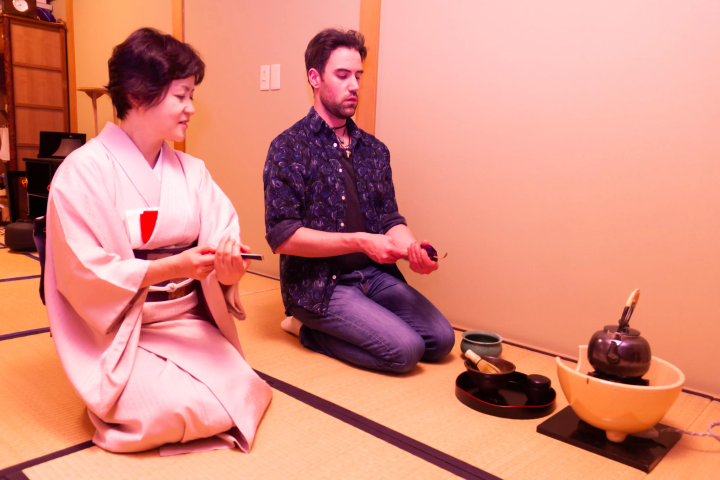
A photo of a German male student practicing
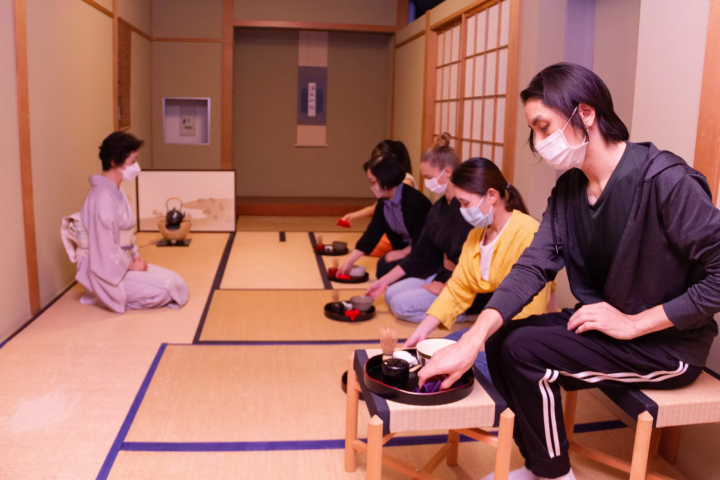
You can also practice without sitting seiza using a tea room chair.
Practice wearing kimono
If you would like to practice wearing a kimono, you may do so, but there is no problem with wearing western clothes.
Most of the Japanese participants are on their way home from work, so there are very few Japanese participants who come to practice wearing kimono, but foreign participants often come to practice wearing kimono or yukata. Sometimes I help out, but everyone is doing their best to put on the clothes themselves. Some students even took a kimono dressing class for this purpose! I would like to introduce a small collection of yukata and kimono for foreign students.
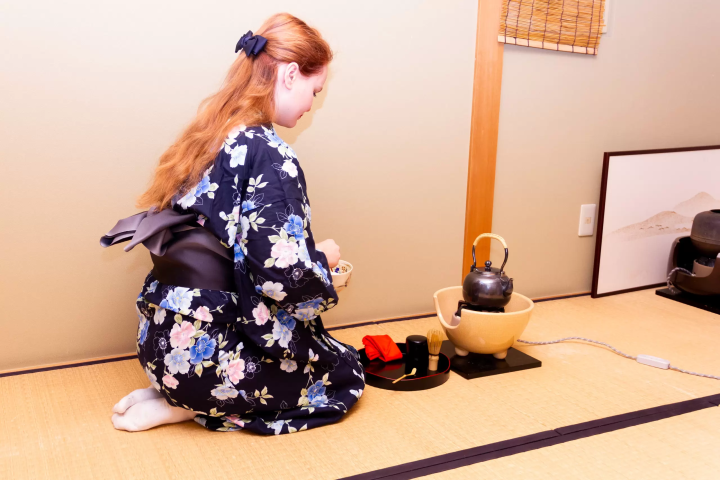
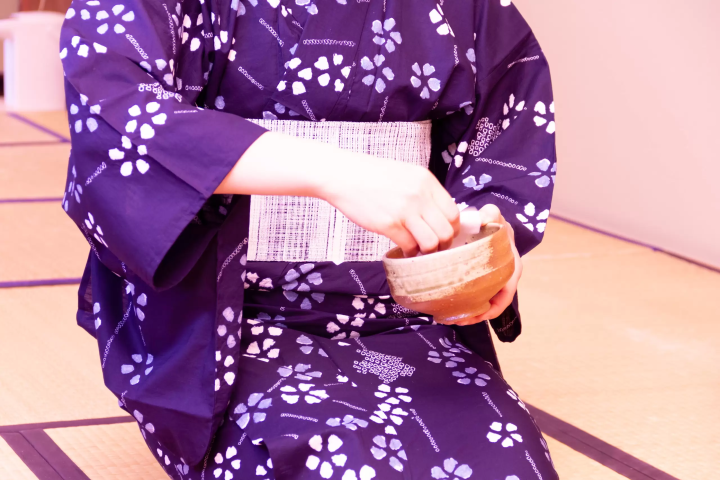
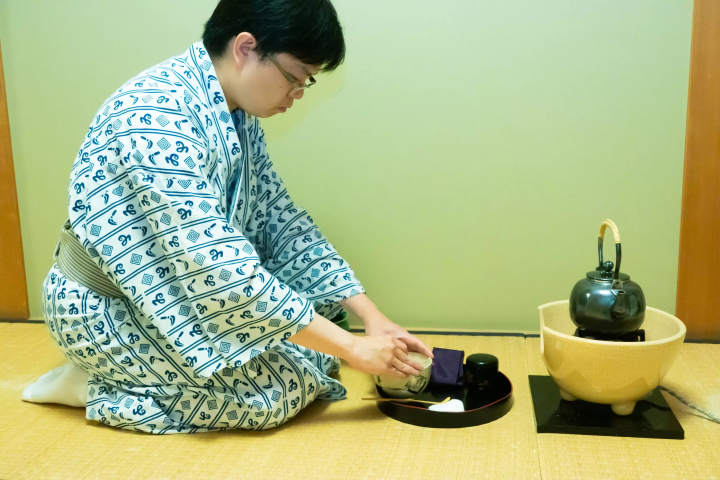
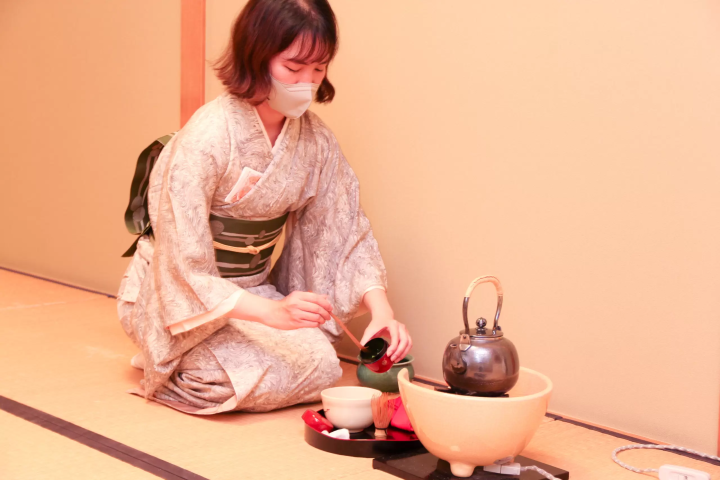
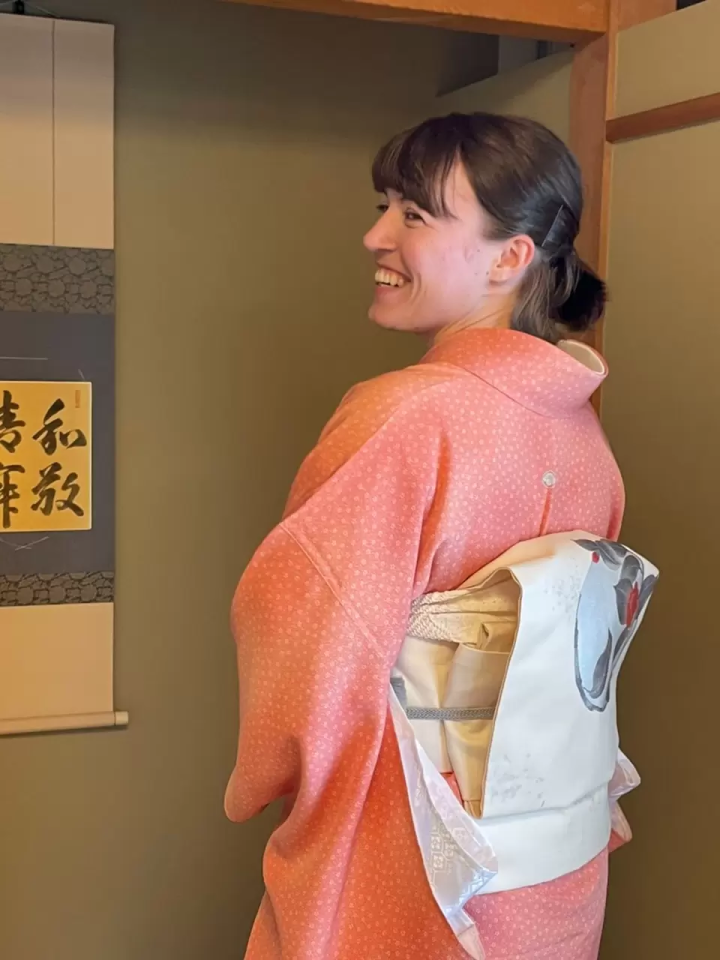
Certificate of completion
We also award a certificate of completion at the end of the course. This is an original certificate of completion from the Kudan Institute of Japanese Language & Culture, so it is not a letter of permission from Urasenke. Those who wish to continue practicing long-term will apply for a permit while continuing to practice in the teacher's classroom.
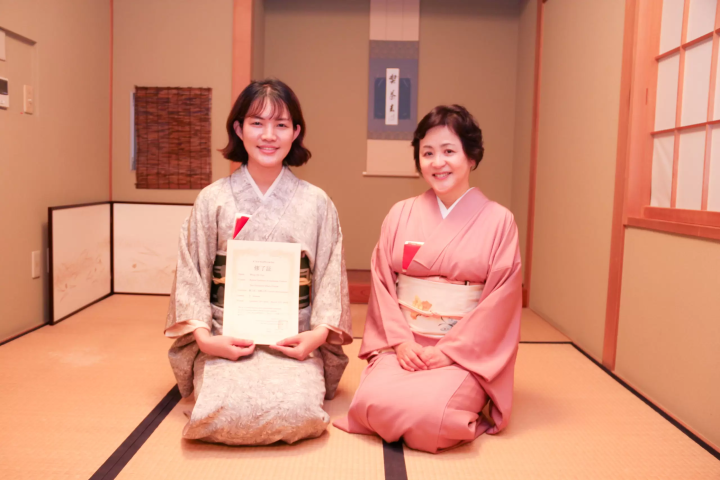
Attendance benefits
We will provide you with study materials (paper and booklets) for home study at your first lesson. After the training is over, we will send you a video URL (limited release) for home practice via email.
You can repeatedly practice, prepare, and review at home.
In addition to videos from the front, we have prepared videos that focus on the teacher's hands from above, so you can check them when you return to your home country or while studying abroad. This means that you can view as much as you want at any time after completing the course.
About the necessary tools
As I wrote at the beginning, we ask that you prepare the following.
Things we ask you to prepare: white socks, paper, youji, and fukusa.
Most of the tools can be borrowed from the school, but we ask that you bring only the items listed above. If you wish, the school can purchase and arrange for you on your behalf. (other than socks)
There are four types of sets that schools can purchase on their behalf. Men's sets may be more expensive than some women's sets. Please note that. I would like to introduce two of the sets. Please contact us for details such as amount.
● Beginner's practice set (cloth, youji/toothpick holder, folding fan, kaishi, box-shaped kaishi paper holder) *Fukusa is not silk one. Purple for men.
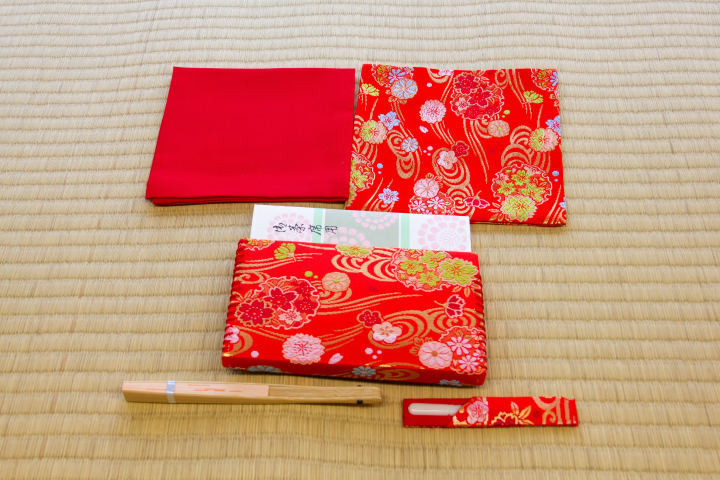
●Bonryakutemae tea ceremony set (silk cloth, youji/toothpick holder, folding fan, kaishi paper, tea towel, chasen, tea scoop, natsume, yamamichibon/tray, tea bowl)
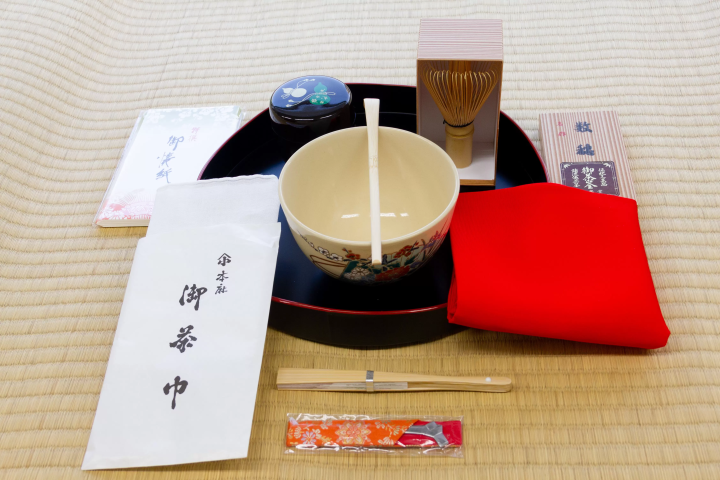
If your schedule does not suit you, we also offer private lessons online or in person.
Click here for the homepage link 👇
Inquiry/Application
info_culture@kilc.co.jp Person in charge: Yamanaka
Kudan Institute of Japanese Language & Culture is located about 5 minutes walk from JR Suidobashi Station (east exit) and about 10 minutes walk from Jimbocho Station and Kudanshita Station. At any given time, students from 25 to 40 countries study in Japan. At our school, we have events and courses where you can not only learn Japanese but also learn about Japanese culture. In addition to the conversation course, intensive course, and practical Japanese course, we also offer a short-term tea ceremony course and a manga course. You can take a cultural course after your Japanese class. (Manga course is set with conversation course) There are also courses that can be studied online. [Job Preparation Course] for those who are aiming to find a job in Japan, [Business Japanese Brush-up Course] for those who are already working in Japan and can learn the business Japanese and etiquette necessary for working, and the Japanese Language Proficiency Test ( We offer a variety of courses, including the [JLPT Preparation Course] where you can take an online preparation course before the JLPT. For busy people, we can also offer [online private lessons] and [face-to-face private lessons]. Winter holiday courses that include extracurricular activities, spring holiday courses, and summer holiday courses that include travel in addition to extracurricular activities are very popular every year. Summer is especially popular with high school students from various countries, so early reservations are recommended. I am. (It will be closed as soon as the capacity is reached) In addition to English, our school also has staff who can speak Chinese and Korean, so please feel free to contact us.
The contents on this page may partially contain automatic translation.
































![[Company Visit List] Learn from Japanese Business Leaders: Factory Tours & Corporate Visits in Southern Osaka Featuring Manufacturing Technology and Management Philosophy](https://resources.matcha-jp.com/resize/720x2000/2024/12/13-215168.webp)
![[Recommended accommodation in Ureshino Onsen] 1.5 hours from Hakata Station! Enjoy Japanese tea and skin-beautifying hot springs at Saga Ureshino Onsen URESHINO YADOYA](https://resources.matcha-jp.com/resize/720x2000/2025/06/14-236549.webp)
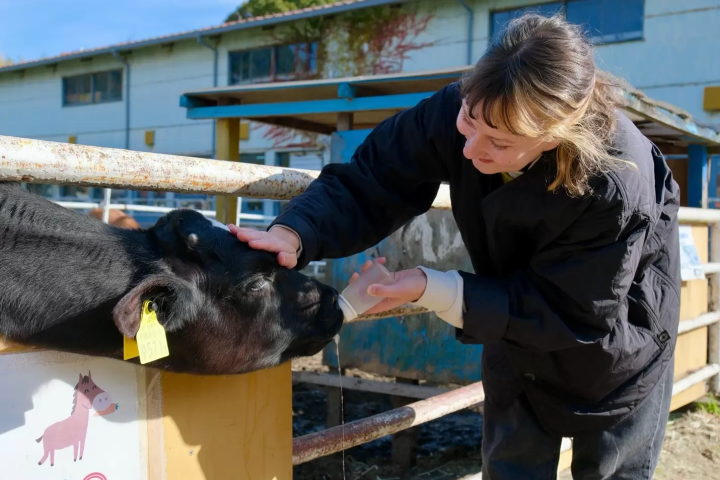
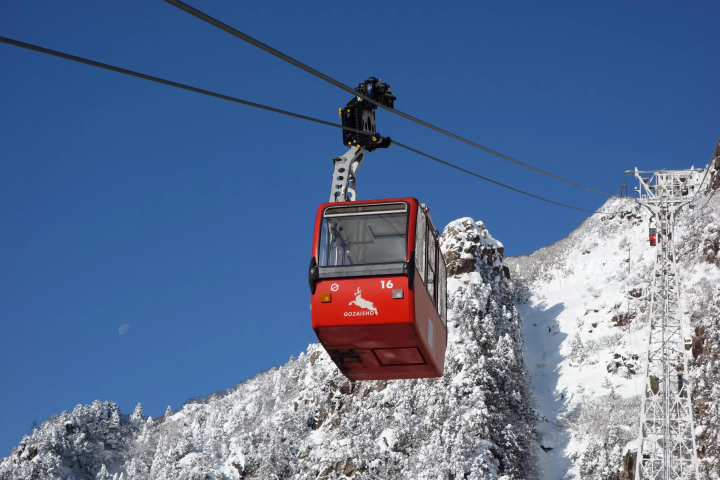
![[Kagoshima] Overcoming 12 Years of Hardship: Walking through Minamisatsuma City, the sacred land where the monk Ganjin landed](https://resources.matcha-jp.com/resize/720x2000/2026/02/21-259481.webp)